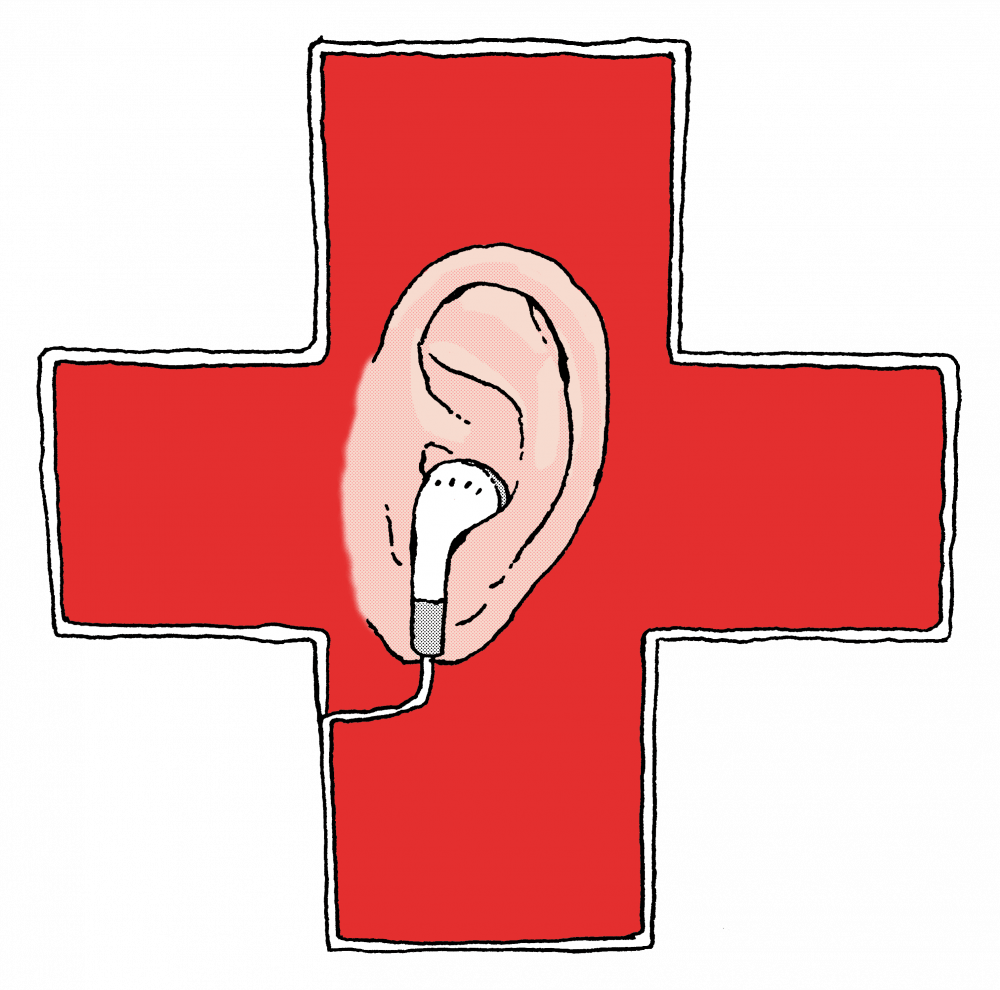It’s a generally accepted part of the concert experience: you’re walking out of the venue after the encore, and as you step out onto the street, every sound is muffled save for a buzzing in your ears, the aftereffects of standing next to a speaker for the better part of the evening. You’ll go home, sleep it off, and everything will be normal in the morning.
Unfortunately, you don’t always bounce back.
Tinnitus affects one in every five people and describes a constant ringing or buzzing sound that only the sufferer can hear. One of the most common causes is prolonged exposure to loud noise, which damages sensory cells in the ear and triggers them at random times, causing the brain to “hear” sound that doesn’t actually exist. Most of the time, this ringing lasts no more than 48 hours, but about twenty million people suffer from permanent tinnitus, which according to the Mayo Clinic can lead to emotional conditions like insomnia, anxiety, and depression. Besides tinnitus, musicians are at a higher risk of hearing loss than the average person. So whether playing or listening to music, here’s how to protect your ears for many years to come.
Step 1: Turn down the amp and step back from the rail.
The easiest solution, of course, is to accept that louder is not a synonym for better. Repeated exposure to noises over 85 decibels can cause hearing damage, and modern speaker systems pack a mightier punch than that: most pop and rock concerts hover around 100 decibels. For music you play, taking the volume down a couple of pegs is an easy solution, whereas standing farther away from the speaker system is the first line of defense at concerts.
Step 2: Wear earplugs.
Okay, fine: you want to be close enough to touch your favorite artist, and there’s no point in owning an amp that you can’t take up to eleven. The next best thing, then, is to buy a solid pair of earplugs for concerts and performances. For concertgoers and musicians alike, Eargasm High–Fidelity Earplugs ($35) and LiveMus!c HearSafe Ear Plugs ($29) selectively reduce noise by 20–30 decibels so that the music you want to hear still comes out clear, albeit a bit softer.
For those who are looking to perform long–term in music ensembles, especially jazz and rock, the best long–term option is to get custom–molded earplugs from a local audiologist, which can cost in the ballpark of $250–350.
Step 3: Monitor your listening.
Tinnitus and hearing loss result from a combination of volume and duration in listening. While modern iPhone models can achieve volumes of over 100 decibels, this doesn’t mean you should use the volume button to its full potential: hearing damage can occur after only five minutes of listening to music at your phone’s maximum volume. Researchers advise following the 60/60 rule: listen for sixty minutes at 60% volume to protect your hearing.
Step 4: Buy smart.
Over–the–ear headphones are, as a general rule, safer for long–term listening: by being placed directly in your ear canal instead of over the outer ear, earbuds add about 9 decibels compared to headphones. They also require you to listen with both ears at one time, preventing the damage from wearing one earbud and turning the volume up. In a similar vein, though they are more expensive, noise–cancelling headphones will protect your ears in the long term: noise–cancelling and non–cancelling headphones at 70% volume will give the same decibel input to your ears, and you won’t be compelled to turn the volume up to combat ambient noise.
High quality noise–cancelling headphones like the Sony WH1000XM3 ($350) and Bose QuietComfort 35 II ($350) can cost a pretty penny, so the JVC HANC250 ($100) might be more within a college budget.
Step 5: Get professional testing.
While the casual music listener likely has nothing to worry about, frequent listeners, concertgoers, and musicians, as well as anyone who works in a noisy environment, should get a hearing exam done every one to three years to check for damage and take added protective steps if needed. Just because you don’t notice hearing loss doesn’t mean it hasn’t begun, and early detection is the best prevention.
Remember, protecting your hearing now is the best way to ensure that you can keep listening for a lifetime.

